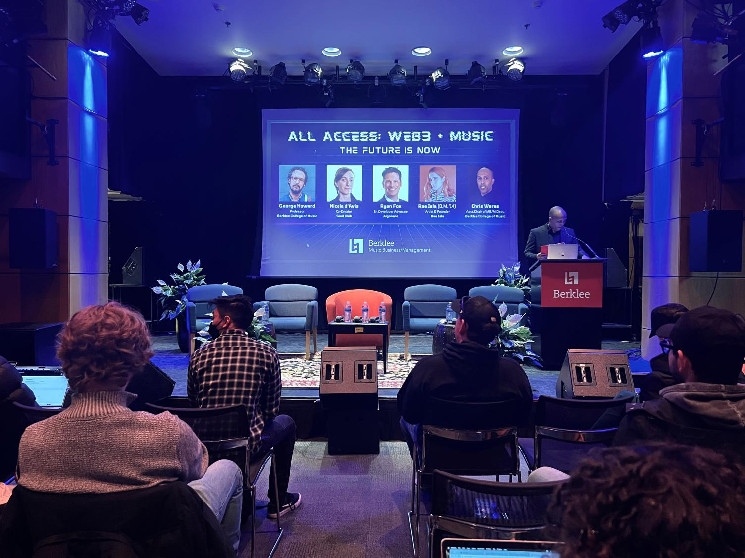The NEAR Foundation, a non-profit organization dedicated to fostering the growth of the NEAR blockchain ecosystem, has joined forces with Berklee College of Music, a global leader in contemporary music and performing arts education. Together, they’re introducing an app called RAIDAR (Rights and Asset Information in Decentralized, Authoritative Repositories), designed to revolutionize how musicians and creators navigate the world of music licensing.
—
RAIDAR, conceived at Berklee under the guidance of Professors George Howard and Andrea “Ani” Johnson, leverages NEAR’s blockchain technology, known for its rapid scalability and cost-effectiveness. This innovative app aims to create a marketplace where musicians can seamlessly upload their music, complete with metadata, while prospective users, be it filmmakers, game developers, advertisers, or others, can effortlessly license this wealth of musical talent.
What sets RAIDAR apart is its commitment to ensuring that creators receive their due credit and economic value for their musical works, all recorded transparently on the NEAR blockchain through smart contracts.
How RAIDAR Works
Using RAIDAR is straightforward. Musicians upload their music and accompanying metadata via a user-friendly web app, accessible on both desktop and mobile devices. Each song is represented by a secure smart contract and assigned to the creator’s digital wallet as an asset or NFT, allowing creators to showcase their musical talents effortlessly.
For music enthusiasts seeking to license songs, RAIDAR offers an extensive catalog of music. Users can explore, search, filter, and preview songs uploaded by fellow creators, then purchase single-use licenses directly through the app.
The app’s smart contract ensures that the revenue from these transactions is distributed directly to the song’s creator. After completing the purchase, users receive an email containing the song download link and a copy of the licensing agreement.
“This is a first of its kind product that will help to democratize the world of music by putting creators first and ensuring they are always rewarded and protected from exploitation for their original work.”
George Howard, Professor of Music Business at Berklee
“Those who are seeking to license music for their projects now have a chance to access and support new creators by tapping into an exciting marketplace through the RAIDAR app, which is easy to navigate and offers a safe and reliable way to pay for music,” added Professor Howard.
RAIDAR holds a pivotal role in Berklee’s Center for Innovation and Impact, a project that aims to launch next summer. Professor Tonya Butler, Chair of the Music Business/Management department at Berklee and Managing Director of the Center for Innovation and Impact, highlighted the significance of NEAR’s support in this venture.
RAIDAR will serve as an educational tool, allowing students to engage with emerging technologies while collaborating with professionals from the music, entertainment, and tech industries.
The Future of Music Licensing
Chris Donovan, CEO of the NEAR Foundation, commented: “We are extremely excited to be working with Berklee to support a new and unique use case that has real world value for those that use it. The RAIDAR app is a disruptive technology built on NEAR that will help students to explore the power of smart contracts to ensure they are being paid fairly for their work, and that the world of music becomes more inclusive, safe and exciting for everyone.”
Read the full article here

